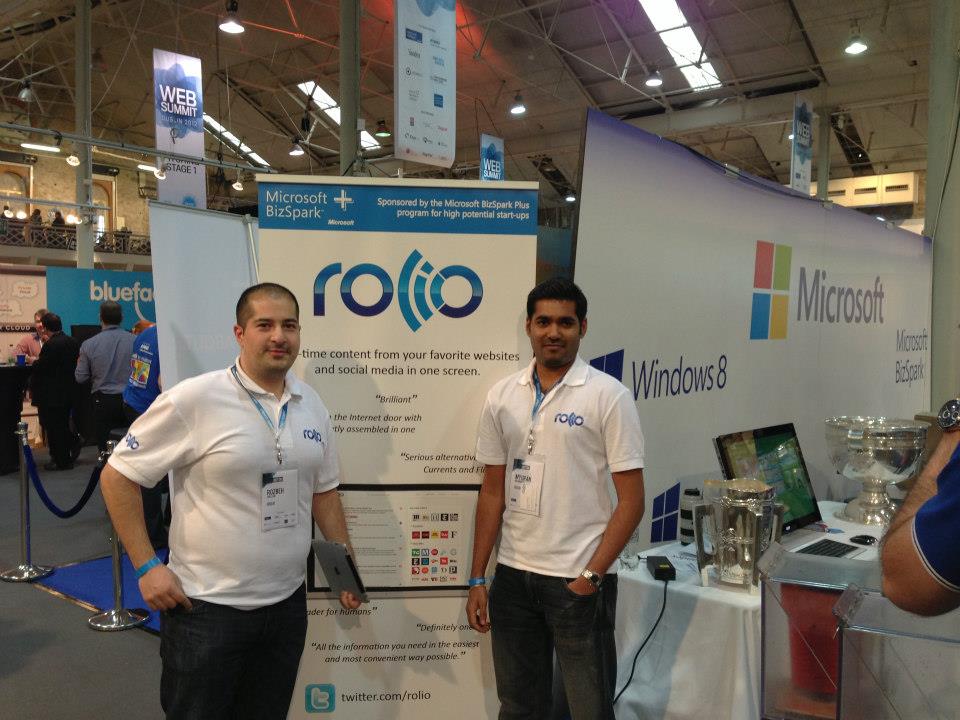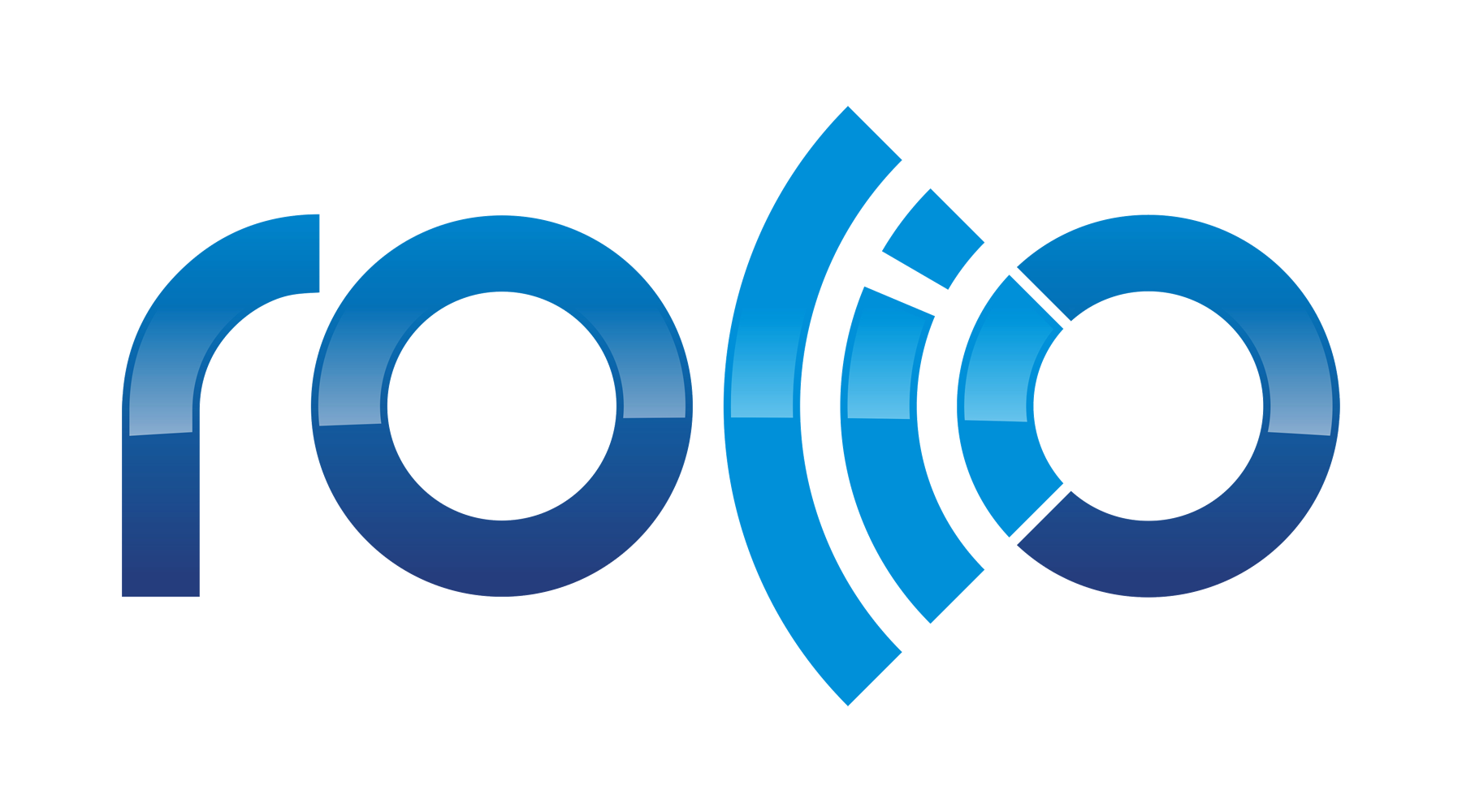Featured Startup on Azure - Rolio
You know that thing about browsers where you have to read a bunch of pages but they are not all on the same pages? Yes, that is annoying, isn't it? And you know how when you read RSS feeds, you still have to click on individual links and read one story at a time -- in different browser windows? Yeah, that is annoying, too.
Well, a Microsoft BizSpark member company in London, called rolio, has created a solution for this, and what they've done is pretty interesting, so we have decided to feature them as today's featured BizSpark Startup. Here's the deal on them. Rolio is a free web application that aggregates real-time content from your favorite websites, including Facebook and Twitter, into one visual interface, eliminating the need for multiple browser windows. Rolio is currently available as a free web application. The Windows Phone App and Windows 8 App are currently in development and will be released in the near future.
Microsoft technologies they are using in conjunction with the development of the application:
-
- Azure Web Roles (ASP.NET C#)
- Azure Worker Roles
- Azure WCF Services
- Azure Distributed Cache
- Azure Queues
- Azure Blob Storage
- Azure Table Storage
- SQL Azure Database
 Rozbeh Nassab / Myuran Balendran (Co-founders & Software Developers) - - Microsoft Stand (Dublin) Web Summit
Rozbeh Nassab / Myuran Balendran (Co-founders & Software Developers) - - Microsoft Stand (Dublin) Web Summit

Do you build for scale first, or for revenue? How are those things related in your mind?
We built for scale first. We knew that our application had a global scope, and could appeal to every internet user. We also knew that if we were able to obtain a large number of users, revenue would follow. Therefore it was essential that our application was scalable in the first instance, and being invited onto the BizSpark Plus Program certainly helped!
Where do you include technical members of your team during the building of your business plan?
If you have the resource, our advice would be to engage with technical members at the earliest possible stage. Given a final specification, a developer can produce a working solution in a number of different ways. However, just having a working solution is not always adequate. If technical members are involved in business plan discussions at an early stage, they will gain a greater insight into the big picture and be better placed to produce the best solution, catering for future work, flexibility and scalability, rather than just a working solution under current requirements.
Rolio - Web Application Demonstration Video from Rolio on Vimeo.
When did you decide that you were “startup material”?
Once we had come up with a list of application features, we were fairly convinced that we would use the application on a daily basis. We then “plugged” our idea to close friends and family who gave us similar feedback and gave us confidence that our idea had the potential to be popular. We knew we had the technical ability to implement our vision, and our startup was born!
What are some of the challenges you face as a founder or developer at a startup, when it comes to dealing with family life, or socially? Does working on a startup change the way you associate and interact in these areas?
In both our cases, we made the tough decision to quit our jobs and focus all our attention on our startup. This led to immediate lifestyle changes - moving from working under more interactive and social conditions in large organizations, to working in a much smaller team with a large proportion of time spent working in isolation.
It became really easy to get caught up in the project, and we found ourselves putting in far more hours than we did in our day jobs! Weekends became just another working day. This led to social sacrifices initially, but we both soon recognized the importance of taking breaks and finding time to relax and stay energized.
Can you describe the relationship that you have had with Microsoft in building your startup?
Microsoft has been an invaluable asset in our corner. We have been able to seek advice at every step, from discussing business models with Microsoft senior business leads, to speaking about cloud solutions with Microsoft technical architects.
We joined the BizSpark program, and were lucky enough to be invited onto the BizSpark Plus program. As well as receiving a generous sponsorship of our cloud resources, we have found the support network and incubation services to be invaluable.
The backing we receive from Microsoft was visible for all to see at the Web Summit Conference in Dublin 2012, where a banner for our application was on-display at the Microsoft stand!
Why would an entrepreneur turn to Microsoft for help in building scale, a team, or using software?
Microsoft has a huge network of resources. Whatever you need, it’s likely that they have it covered. With Azure and Windows 8, we can see that Microsoft is constantly evolving and continues to be right at the forefront of technology.
How is Azure implemented in your solution?
There are a number of components to our Azure application.
Web roles host the web application, and utilize a distributed cache. A number of Worker roles are employed – some process data from thousands of sources and write results to Azure Queues. Other Workers pick up messages from these queues and write to a SQL Azure database. Other Workers process file imports that are written to Azure blob storage from the Web roles.
WCF services are used to service our mobile application, and for inter-role communication and synchronization.
How did you get excited about Azure?
We spoke to a Microsoft representative at a business conference regarding the capabilities of Azure, and the comparison with its competitors. He informed us that there were free bootcamps, run by the UK Windows Azure User Group, where we would be able to view and practically demo the features of Azure. Following this, we were confident that Azure ticked all of our boxes.
What were the Azure features that prompted you to decide to build on Azure?
Coming from a .NET background, working with Azure made perfect sense.
We wanted to focus on building our application, rather than worrying about infrastructure.
The BizSpark offering was impossible to turn down!
What advice do you have for companies that are thinking about building in the cloud?
- Investigate whether you want PAAS or IAAS, and choose the right cloud provider.
- Make sure you understand the pricing models – costs can spiral out of control when you start scaling!
- Check out the offers – joining BizSpark is the best start you can make.
